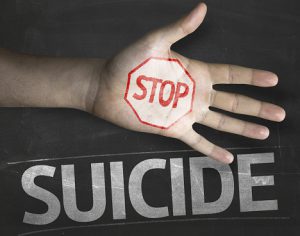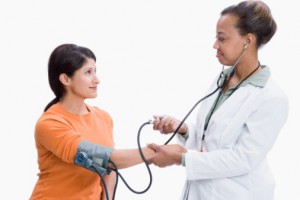Understanding Physical and Mental Health: Depression
Ira Frankel, PhD, LCSW, Administrator of Psychiatry and Addiction Services
“Just as long as we have our health,” is something that I’ve said and have heard others say very frequently in the past few months. And, by health, we mean both physical and mental health.
In a very basic way, health can be thought of as the absence of disease. A reason that our doctors ask us how we’re feeling when we go to see him or her is because he or she wants to know about our comfort or our absence of pain or trouble. Each one of us knows best what our physical or mental pain or trouble consists of because we feel it directly.
Another way to think of the issue of health is to describe the path to achieve it over the long course of our lives. Studies1 have shown that a path to health is achieved with a behavioral prescription for successful aging that includes diet, exercise, the pursuit of mental challenges, self-efficacy, and social support. The more we are able to follow this behavioral prescription, the more we will be free from physical or mental pain or trouble.
Let’s look at this a little more closely. Most of us already know that if we maintain a healthy diet and exercise frequently, then we will tend to be healthier. In fact, exercise is now considered a “magic bullet” in modern medicine. But, maintaining a good diet and exercising frequently is a mental challenge of self-mastery. And, most of us know how difficult it is to master ourselves to maintain both activities. There are many other mental challenges. For example, each one of us is a mental challenge to other people. In fact, getting along with others is one of the most difficult mental challenges that we will ever have to face.
The fourth successful aging ingredient is self-efficacy. Those of us who believe that we can achieve a particular goal, for example, health and longevity, will continue to do the things, such as diet, exercise, and the pursuit of mental challenges, which will help us achieve the goal. We can build up self-efficacy by taking small, rather than giant steps, towards diet, exercise, and the pursuit of mental challenges
The final successful aging ingredient is social support. If we help each other take the steps described in the previous paragraphs, then each one of us will be more likely to feel at ease, that is, without disease, successfully age, and live longer.
Self-mastery is necessary for both physical and mental health. The behavioral prescription for successful aging in the previous paragraphs are just a general outline of self-mastery steps. Self-mastery is a mental challenge.
Many things get in the way of self-mastery. One of these things is depression. If we are depressed, then we have a hard time maintaining a good diet, exercising as we should, thinking well about self-mastery, feeling self-efficacy, or being with and getting along with other people. There is a fairly simple way to ask ourselves whether we are depressed. It is called the PHQ-2, which stands for the Patient Health Questionnaire-2 because it has two questions.
Ask yourself: Over the past 2 weeks, how often have you been bothered by any of the following symptoms: 1) Little interest or pleasure in doing things; and, 2) Feeling down, depressed, or hopeless. Answers are either (0) not at all, (1) several days, (2) more than half the days, or (3) nearly every day. Bring your answers to your primary care doctor the next time you see him or her.
Taking the self-mastery steps towards successful aging and longevity is a main task of modern medicine. Taking the self-mastery steps is a very important mental challenge. If you are experiencing any difficulties taking these steps, such as depression or any other difficulty on your path to ease and comfort, then speak with your primary care doctor in the community or one at Flushing Hospital’s Ambulatory Care Center at 718-670-8939
All content of this newsletter is intended for general information purposes only and is not intended or implied to be a substitute for professional medical advice, diagnosis or treatment. Please consult a medical professional before adopting any of the suggestions on this page. You must never disregard professional medical advice or delay seeking medical treatment based upon any content of this newsletter. PROMPTLY CONSULT YOUR PHYSICIAN OR CALL 911 IF YOU BELIEVE YOU HAVE A MEDICAL EMERGENCY.




 Stress—even the word alone can make you tense up a bit or set off a chain reaction of things that constantly keep your mind going. Some people may handle their stress more effectively or recover from stressful events quicker than others. We hear a lot of sayings about not worrying about the things we cannot control and not sweating the small stuff but, the fact remains, everyone feels stressed from time to time.
Stress—even the word alone can make you tense up a bit or set off a chain reaction of things that constantly keep your mind going. Some people may handle their stress more effectively or recover from stressful events quicker than others. We hear a lot of sayings about not worrying about the things we cannot control and not sweating the small stuff but, the fact remains, everyone feels stressed from time to time.